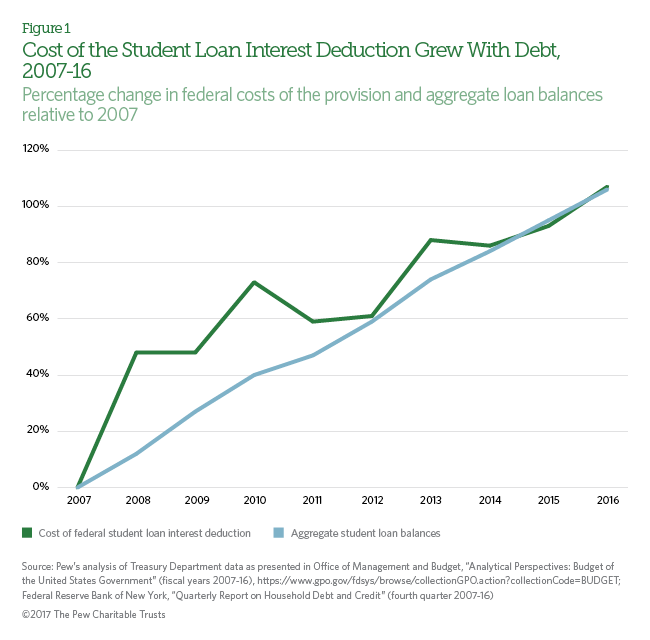Deducting Student Loan Interest 2017
Deducting Student Loan Interest in 2017: A Comprehensive Guide
Navigating the complexities of tax season can be daunting, especially for recent graduates burdened with student loan debt. Understanding the student loan interest deduction is crucial for potentially reducing your tax liability and freeing up much-needed financial resources. This guide offers a comprehensive overview of deducting student loan interest in 2017.
Who Can Claim the Student Loan Interest Deduction?
The IRS has specific criteria that must be met to be eligible for this deduction. You can deduct the interest you paid on a qualified student loan if *all* of the following apply:
*
You paid interest on a qualified student loan.
This loan must have been taken out solely to pay for qualified education expenses. *The qualified student loan was for you, your spouse, or a dependent.
This means the loan must have been used to pay for the educational expenses of someone for whom you are legally responsible. *You are legally obligated to pay the interest.
You cannot claim the deduction if someone else is legally required to pay the interest, even if you make the payments. *Your filing status is not married filing separately.
If you and your spouse are filing separate tax returns, you are ineligible for this deduction. *You (or your spouse, if filing jointly) are not claimed as a dependent on someone else's return.
If someone else can claim you as a dependent, you cannot deduct the student loan interest. *Your modified adjusted gross income (MAGI) is less than a certain amount.
There are income limitations that determine whether you can take the full deduction, a partial deduction, or no deduction at all.What is a Qualified Student Loan?
A qualified student loan is defined as a loan you took out solely to pay qualified education expenses that were:
*
For attendance at an eligible educational institution.
This generally includes colleges, universities, vocational schools, and other post-secondary educational institutions that are eligible to participate in the U.S. Department of Education's student aid programs. *Incurred within a reasonable period before or after you took out the loan.
This typically means that the education expenses were for the academic period covered by the loan.Qualified education expenses include tuition, fees, books, supplies, and equipment. Room and board can also be considered qualified expenses, provided they are incurred while the student is enrolled at least half-time.
How Much Can You Deduct?
The maximum student loan interest deduction is \$2,500. This means you can deduct the *lesser* of:
* The actual amount of student loan interest you paid during the year. * \$2,500.
It's important to note that this is an *above-the-line deduction*, meaning you can claim it even if you don't itemize your deductions. This can provide a significant tax benefit.
Understanding Income Limitations (MAGI)
The amount of student loan interest you can deduct may be limited based on your modified adjusted gross income (MAGI). For the 2017 tax year, the MAGI thresholds were as follows:
*
Single, Head of Household, or Qualifying Widow(er):
The deduction is phased out if your MAGI is between \$65,000 and \$80,000. You cannot deduct any student loan interest if your MAGI is \$80,000 or more. *Married Filing Jointly:
The deduction is phased out if your MAGI is between \$135,000 and \$165,000. You cannot deduct any student loan interest if your MAGI is \$165,000 or more.To determine your MAGI, start with your adjusted gross income (AGI) from your tax return and add back certain deductions, such as those for student loan interest itself, tuition and fees, and IRA contributions (if applicable).
How to Claim the Deduction
To claim the student loan interest deduction, you'll need to file Form 1040. You'll report the deduction on Schedule 1 (Form 1040), line 33 (Adjustments to Income). Your loan servicer should provide you with Form 1098-E, Student Loan Interest Statement, which shows the amount of interest you paid during the year. Keep this form for your records.
Important Considerations:
*
Keep Accurate Records:
Maintain records of all student loan interest payments, including statements from your loan servicer. *Seek Professional Advice:
If you're unsure whether you qualify for the deduction or how to calculate your MAGI, consult a qualified tax professional. They can provide personalized guidance based on your specific circumstances. *Stay Updated:
Tax laws and regulations can change. It's always a good idea to stay informed about the latest updates from the IRS.The student loan interest deduction can provide valuable tax relief for eligible borrowers. By understanding the requirements and limitations, you can maximize your potential tax savings and make progress towards managing your student loan debt. You can find more information about this and other financial topics at Deducting Student Loan Interest 2017 . Remember to consult with a tax professional for personalized advice.

Comments
Post a Comment